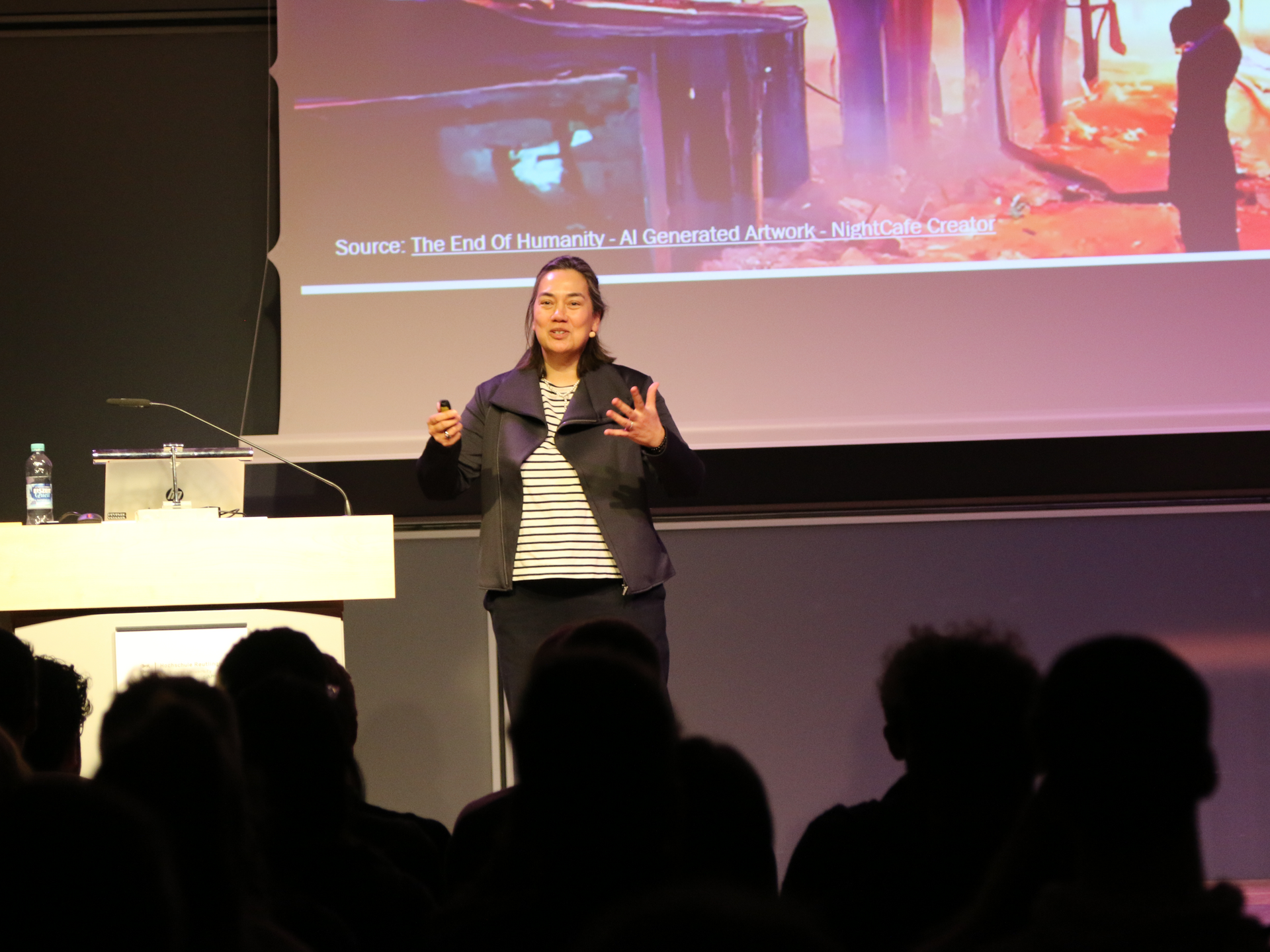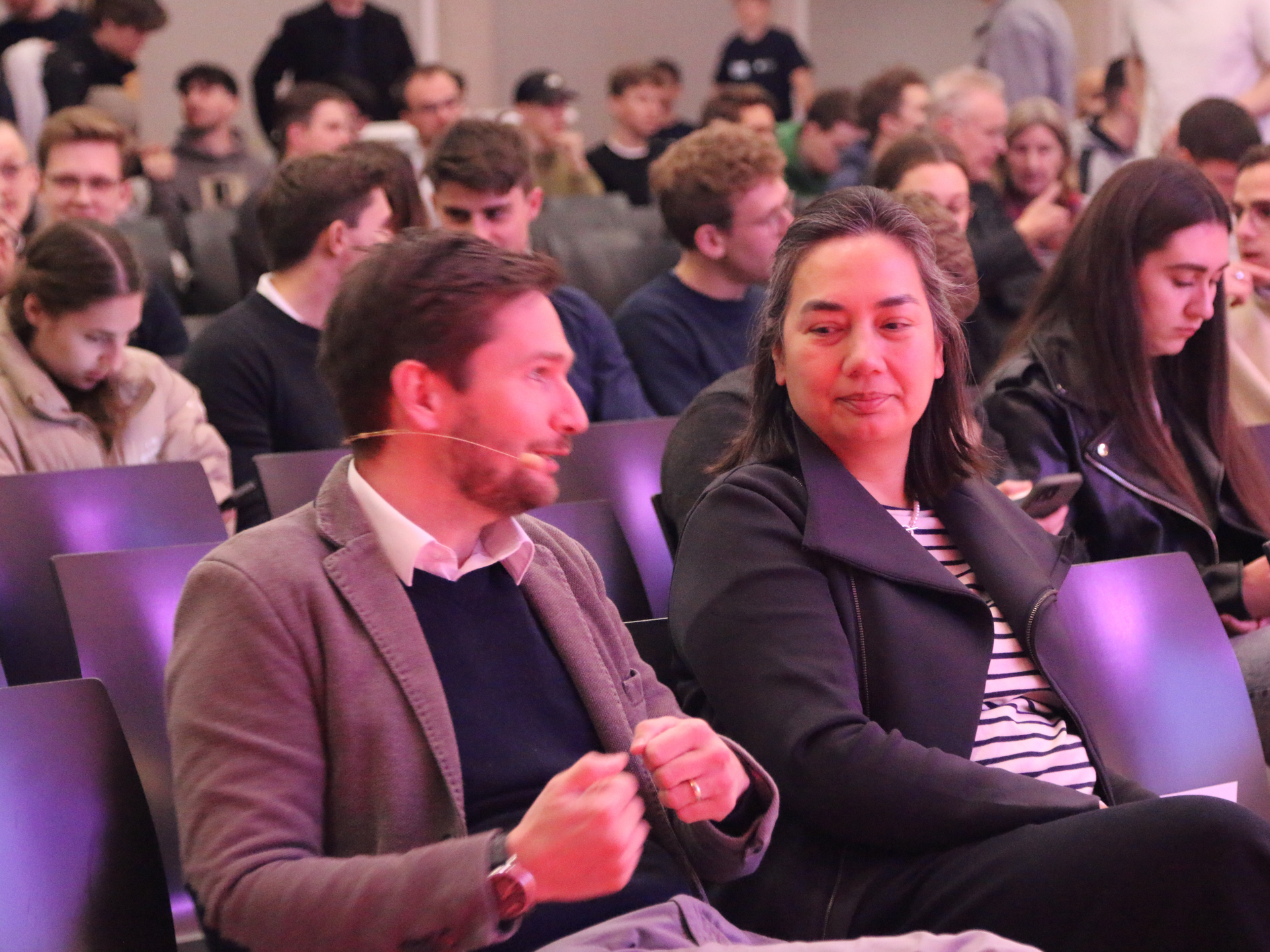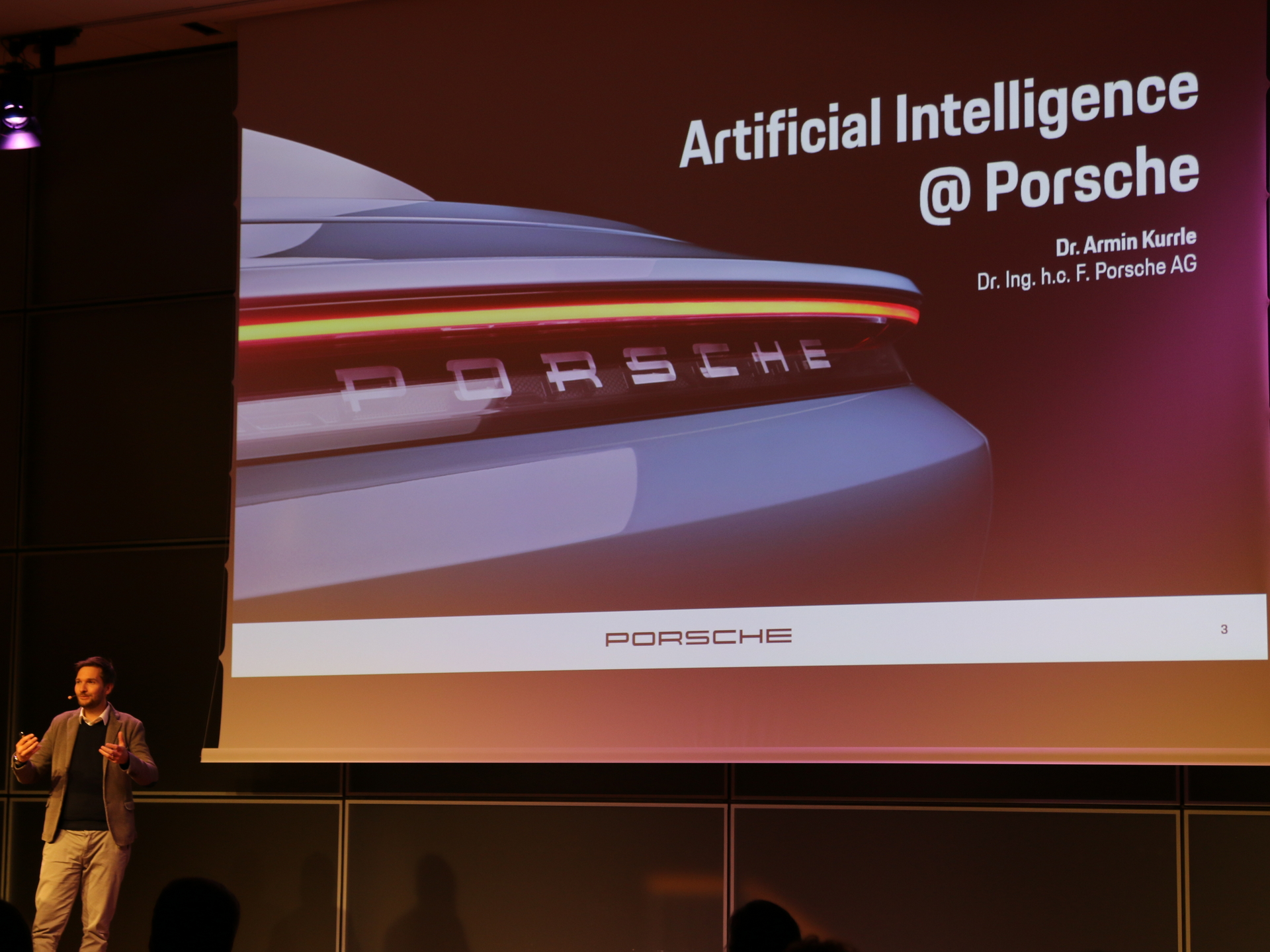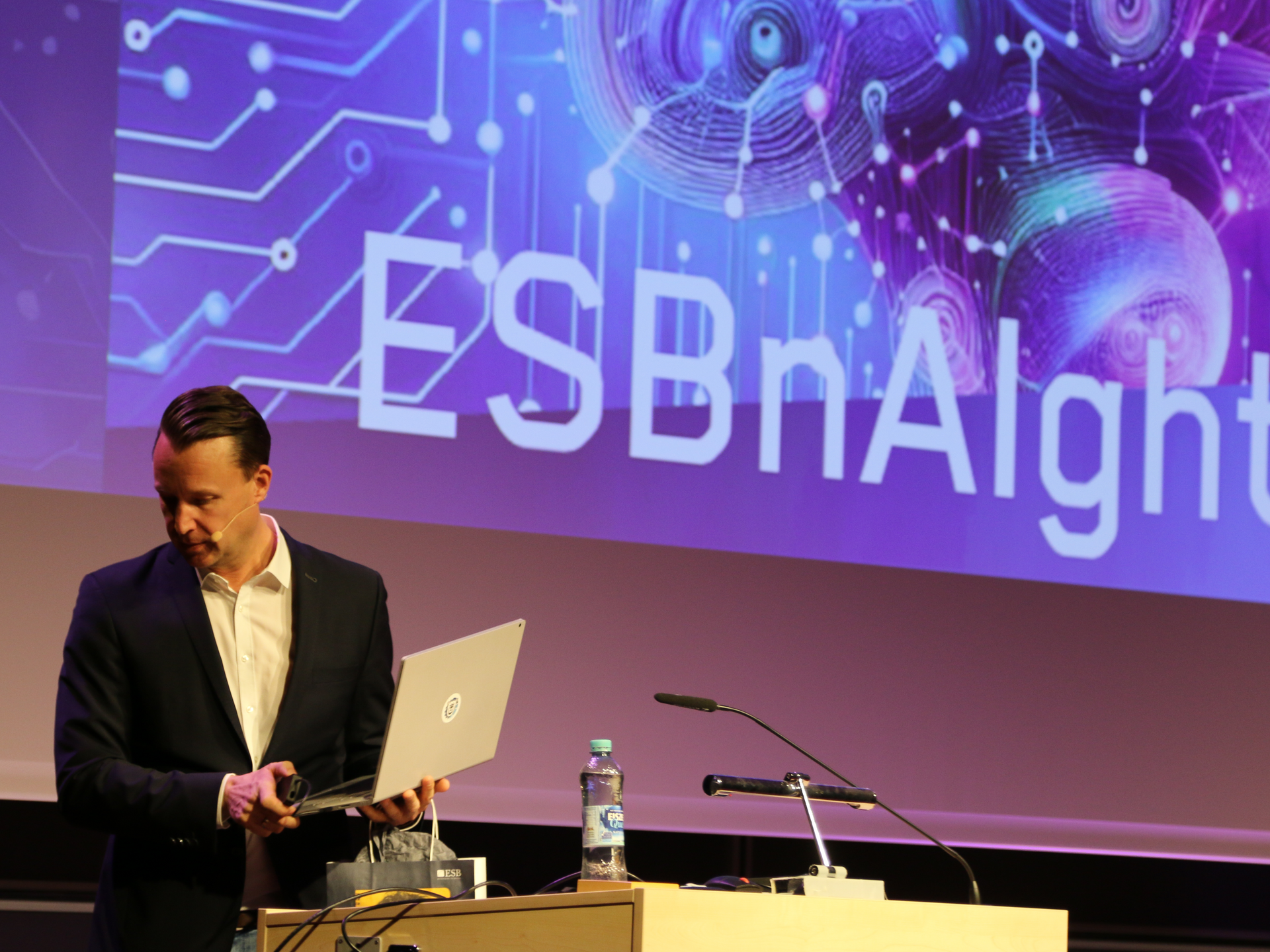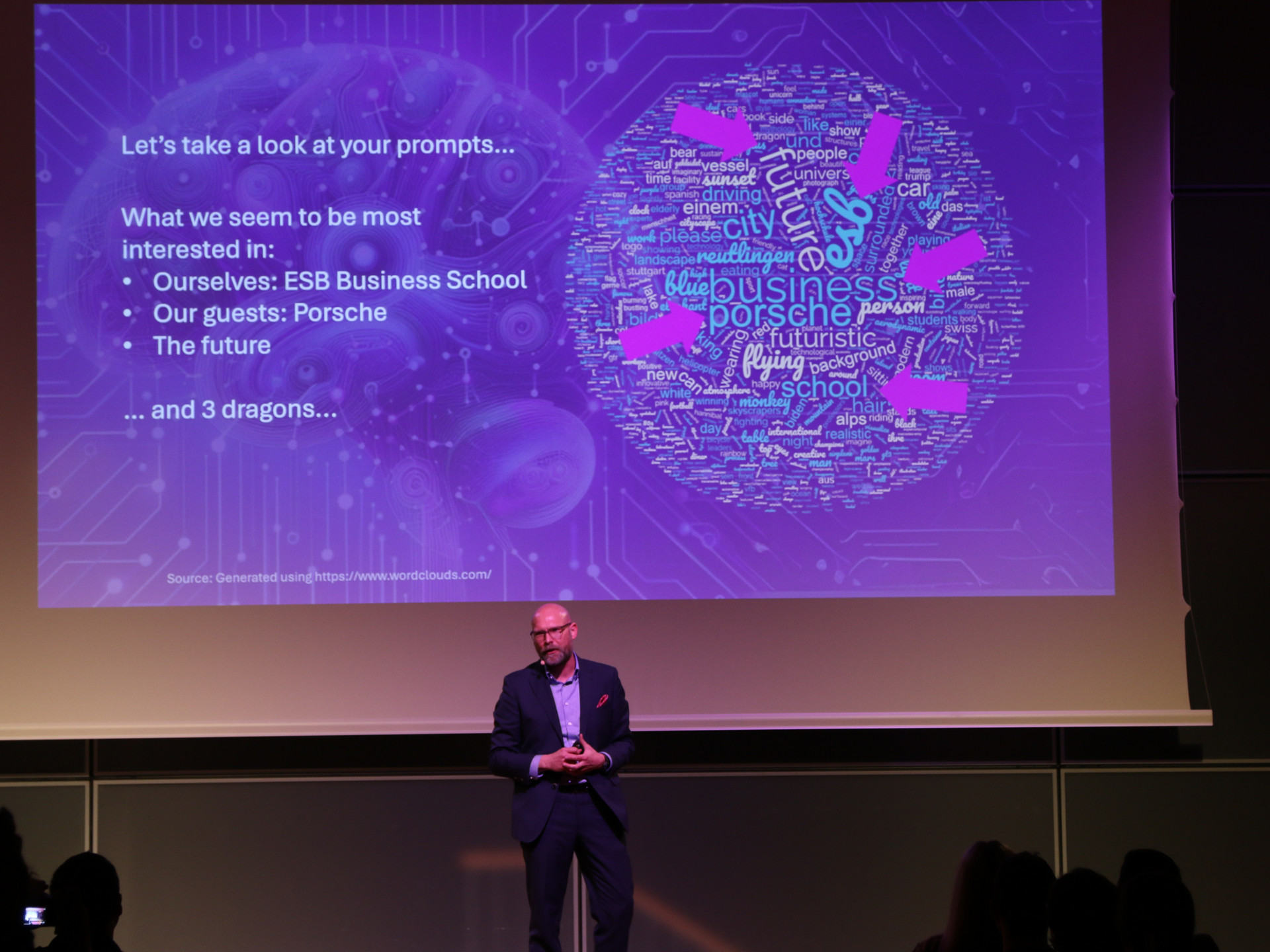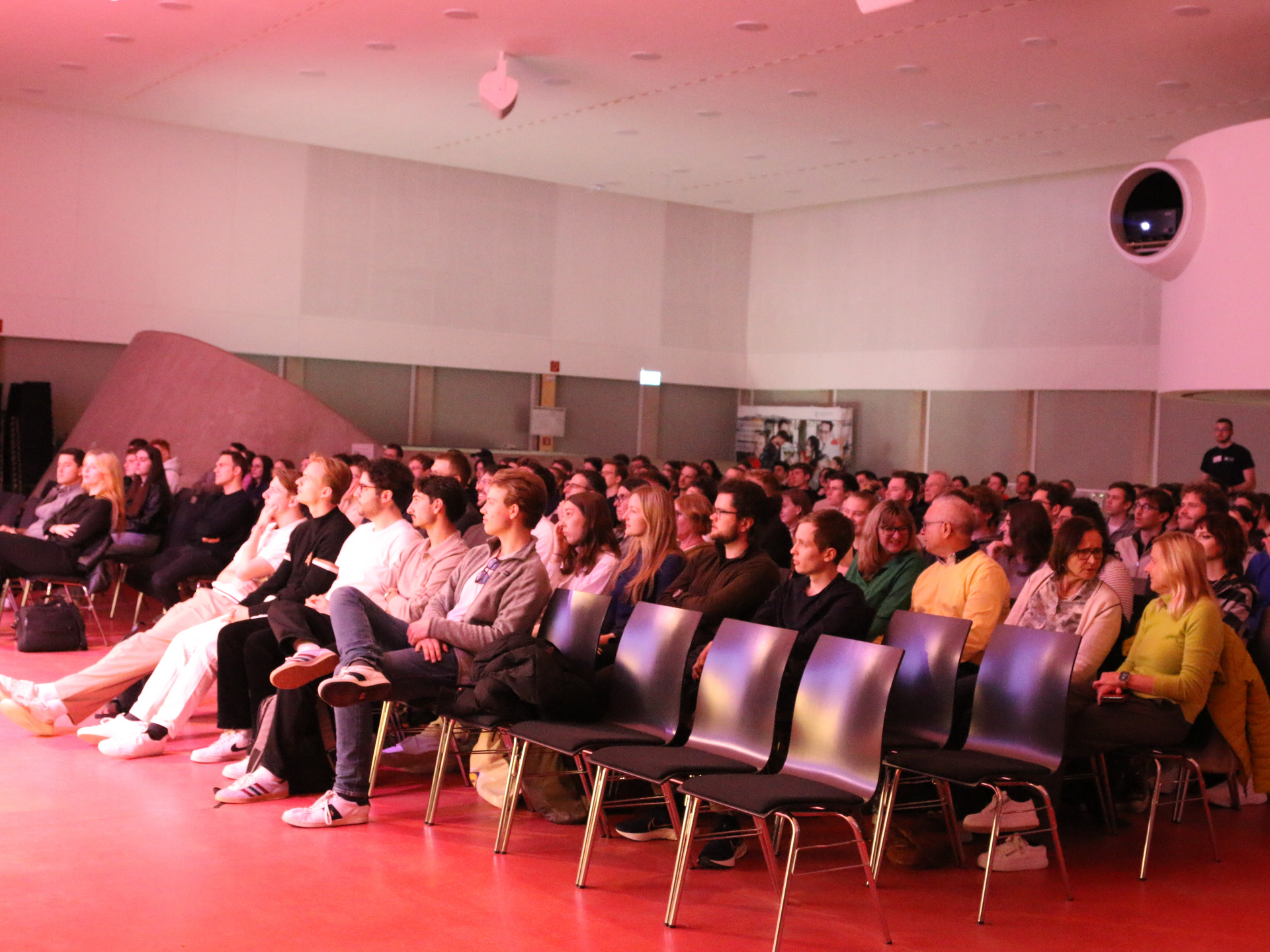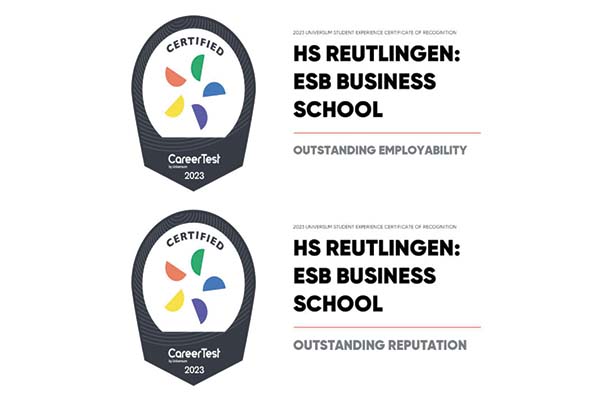ESB nAIght: A deep dive into Artificial Intelligence
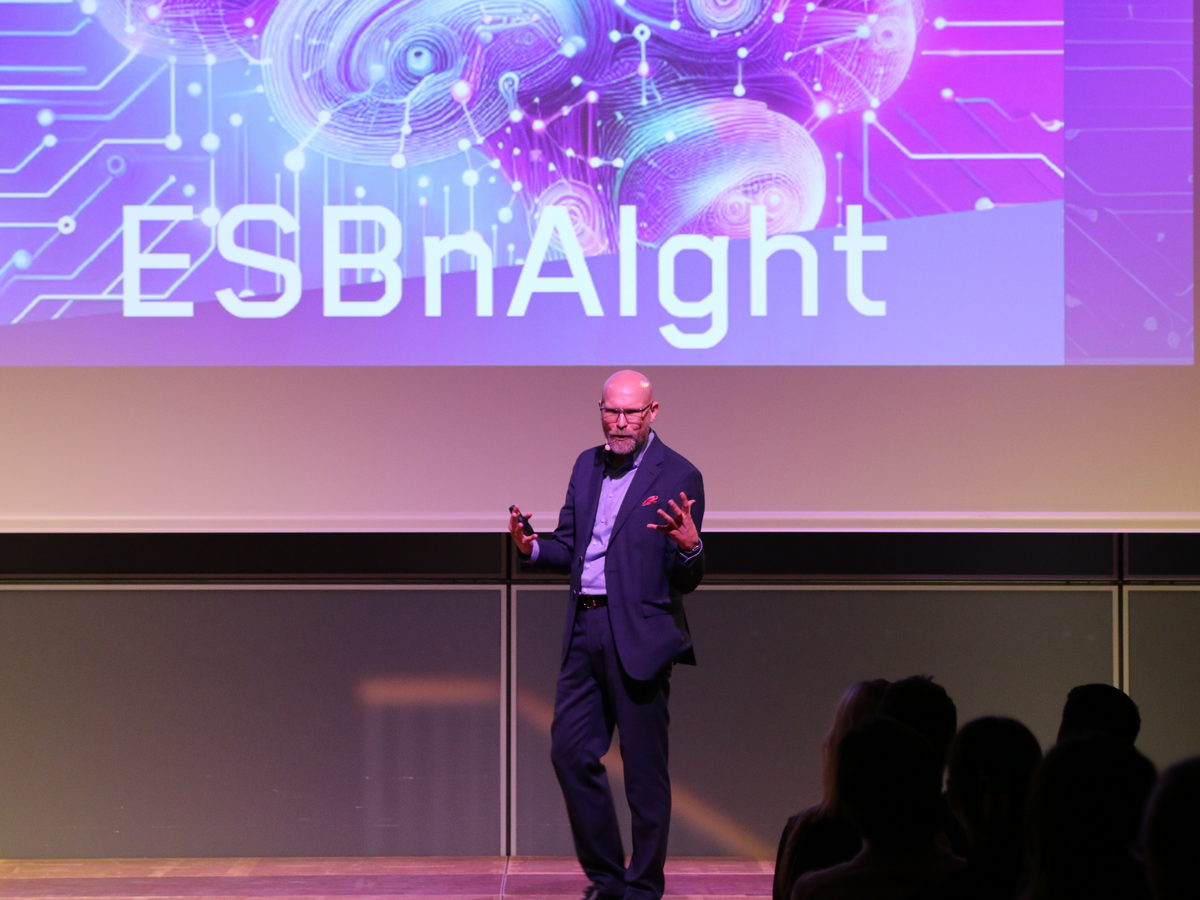
Integrating artificial intelligence (AI) into various sectors has sparked discussions ranging from potential business value to ethical implications. On March 25th, at the ESB nAIght event, experts delved into these topics, shedding light on how AI is reshaping industries and society at large. The speakers came from various fields and approached the topic of artificial intelligence from different perspectives, enriching the discussion with diverse insights and expertise. Questions such as "How do companies generate value from AI?", "How does AI work?" and "To what extent should we be concerned about AI?" were addressed during the event.
ESB nAIght kicked off with Prof. Dr. Martin Mocker's highly dynamic introduction to artificial intelligence, which involved an interactive game with the audience. He showcased examples of images generated using AI and explored the underlying prompts behind them.
Then, Porsche's Data & AI Hub leader, Dr. Armin Kurrle, outlined the company's AI strategy, envisioning a future where AI is seamlessly integrated into all business areas by 2030. "My dream for 2030 is that AI will be an integral part of all Business Areas at Porsche," said Dr. Armin Kurrle. He discussed how Porsche utilizes AI across departments, from engineering to finance, emphasizing its role in analyzing customer data to enhance products and services. For instance, AI aids in predicting customer behavior, optimizing car features, and reducing food waste in factory canteens, illustrating its multifaceted impact on business operations and sustainability efforts.
The second contribution was by Prof. Dr. Dirk Schieborn. It shed light on the inner workings and mechanisms of AI and machine learning, aiming to understand the underlying processes and algorithms that enable machines to learn and make decisions autonomously. He provided insights into the transformative potential of generative AI, likening it to a "massive disruption" comparable to the birth of the internet. He explained that generative AI diverges from traditional AI by recognizing patterns and generating new content based on given parameters. It is a paradigm shift with implications for various industries, including creative fields.
Prof. Dr. Elizabeth Hofvenschiöld then addressed the question of ethics and artificial intelligence. She underscored the ethical dimensions of AI development, stressing that technology is not neutral but shaped by its creators' values and biases. "The technologies we create impact our behavior," Prof. Dr. Elizabeth Hofvenschiöld emphasized. She urged stakeholders to consider the ethical implications of AI beyond technical and legal frameworks, advocating for responsible AI development that aligns with societal values and norms.
By fostering interdisciplinary dialogue and ethical reflection, the audience gained a comprehensive understanding of AI and received highly enriching insights.
